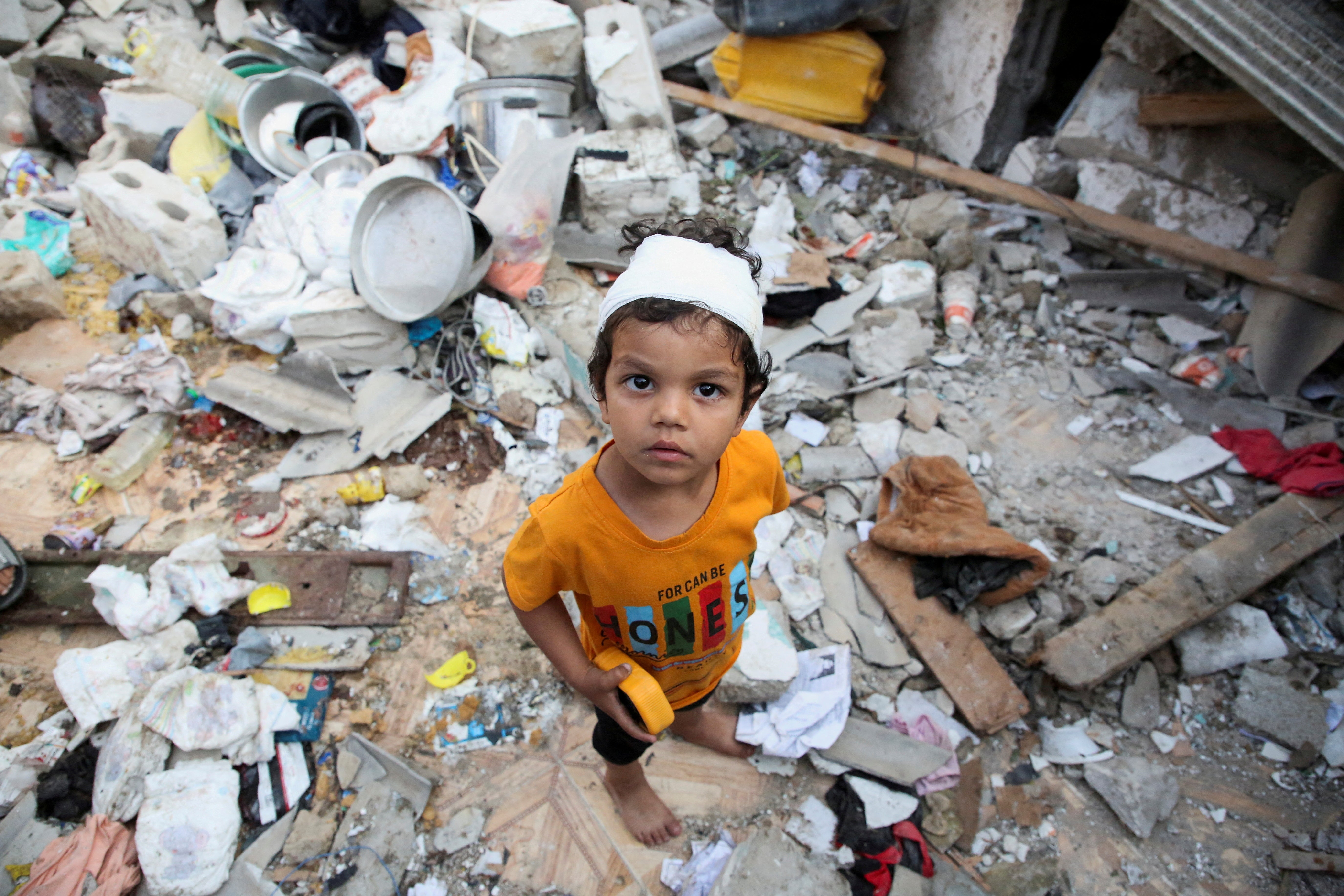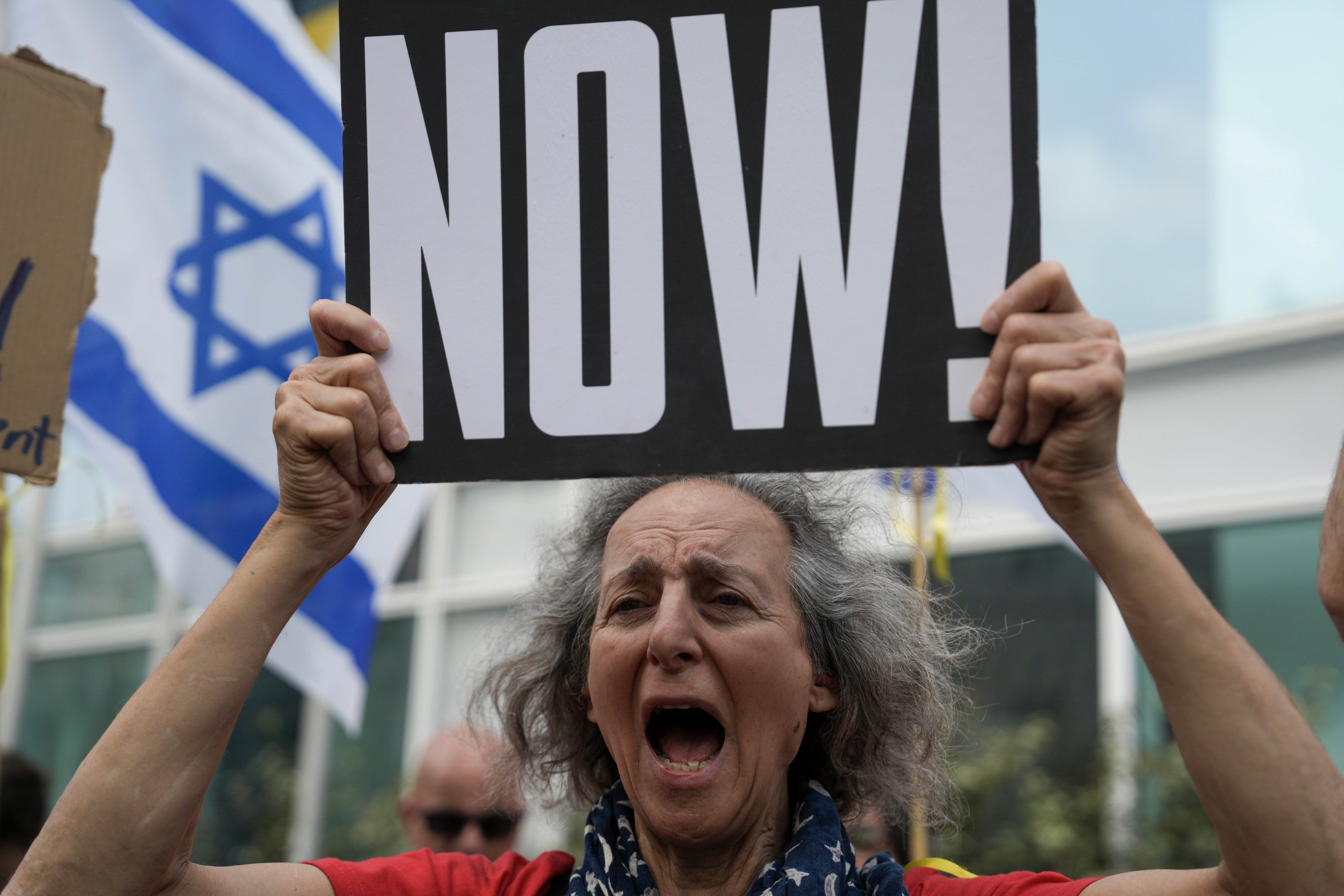Netanyahu tells Blinken he will not end war on Hamas in Gaza as part of hostage deal
‘We are determined to get a ceasefire that brings hostages home and to get it now,’ says US secretary of state

Your support helps us to tell the story
This election is still a dead heat, according to most polls. In a fight with such wafer-thin margins, we need reporters on the ground talking to the people Trump and Harris are courting. Your support allows us to keep sending journalists to the story.
The Independent is trusted by 27 million Americans from across the entire political spectrum every month. Unlike many other quality news outlets, we choose not to lock you out of our reporting and analysis with paywalls. But quality journalism must still be paid for.
Help us keep bring these critical stories to light. Your support makes all the difference.
Israeli prime minister Benjamin Netanyahu is said to have told Antony Blinken he would not accept an end to the war in Gaza as part of a potential ceasefire and hostage deal during a visit by the US secretary of state – who pushed for more aid to Gaza and an immediate truce.
Mr Blinken met Mr Netanyahu in Jerusalem, the final stop on his latest diplomatic tour of the Middle East. It is his seventh visit to a region that has been ravaged by conflict for months.
Israel imposed a crippling siege and launched its most ferocious bombardment yet on Gaza in retaliation for the 7 October Hamas attack on southern Israel, where around 1,200 people were killed and another 250 were taken hostage.
Palestinian health officials say that Israel’s bombardment has killed more than 34,000 people. The UN says that nearly half the population is suffering catastrophic hunger.
During a two and a half hour meeting in Jerusalem, Mr Blinken “reiterated the importance of accelerating and sustaining” the delivery into Gaza, and ongoing efforts to reach an “immediate” ceasefire and hostage exchange deal.
He is expected to visit Ashdod port in the south, which has recently started receiving aid for Gaza after massive international pressure.

Israeli officials told the media that Mr Netanyahu made it clear in the meeting that he would not accept any hostage deal that was dependent on an end to the war.
“He told Blinken that we are interested in reaching a deal, and determined to topple Hamas,” one official told The Times of Israel.
Israel conveyed its latest offer to Hamas through Egyptian mediators late last week, and is expecting a response on Wednesday evening, the official added.
Mr Blinken has blamed Hamas for “standing in the way” of the agreement and urged them to accept what he called an “extraordinarily generous” truce deal. Under the current draft, it would see 33 hostages released in exchange for a larger number of Palestinian prisoners and a halt to the fighting. The expectation is it could see further steps towards a later comprehensive deal.
“The time is now,” Mr Blinken said on Wednesday. He told Israeli president Isaac Herzog at a meeting in Tel Aviv: “We are determined to get a ceasefire that brings the hostages home and to get it now, and the only reason that that wouldn’t be achieved is because of Hamas.”

“There is a proposal on the table, and, as we’ve said, no delays, no excuses,” he said. The deal would also allow much-needed food, medicine and water to get into Gaza, he added.
After meeting Mr Herzog and also families of Americans held by Hamas at his hotel, Mr Blinken briefly greeted several dozen demonstrators who had gathered outside to call for an immediate hostage release deal.
A senior official for Hamas said the group was still studying the proposed deal but accused Mr Blinken of failing to respect both sides, and described Israel as the real obstacle.
“Blinken’s comments contradict reality,” Sami Abu Zuhri told Reuters.
Mr Blinken’s trip comes ahead of Israel’s widely expected offensive in the southern city of Rafah, which is the last refugee in the tiny strip housing over 1.5 million displaced people, many of whom are living in tents. Mr Blinken emphasised the US position on an assault on Rafah during his visit to Israel.
President Joe Biden has made it clear that such a bombardment would be a “red line” in interviews, warning that US policy could shift if Israel fails to take steps to address civilian harm, humanitarian suffering, and the safety of aid workers.
Subscribe to Independent Premium to bookmark this article
Want to bookmark your favourite articles and stories to read or reference later? Start your Independent Premium subscription today.
Join our commenting forum
Join thought-provoking conversations, follow other Independent readers and see their replies
Comments